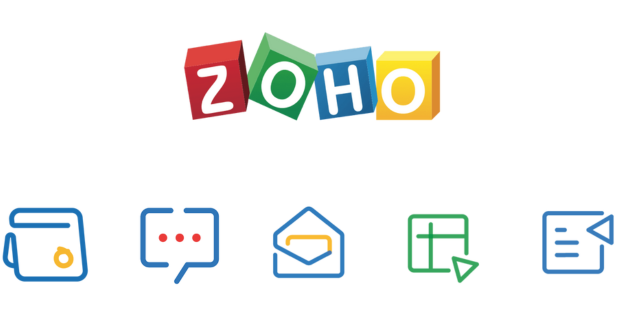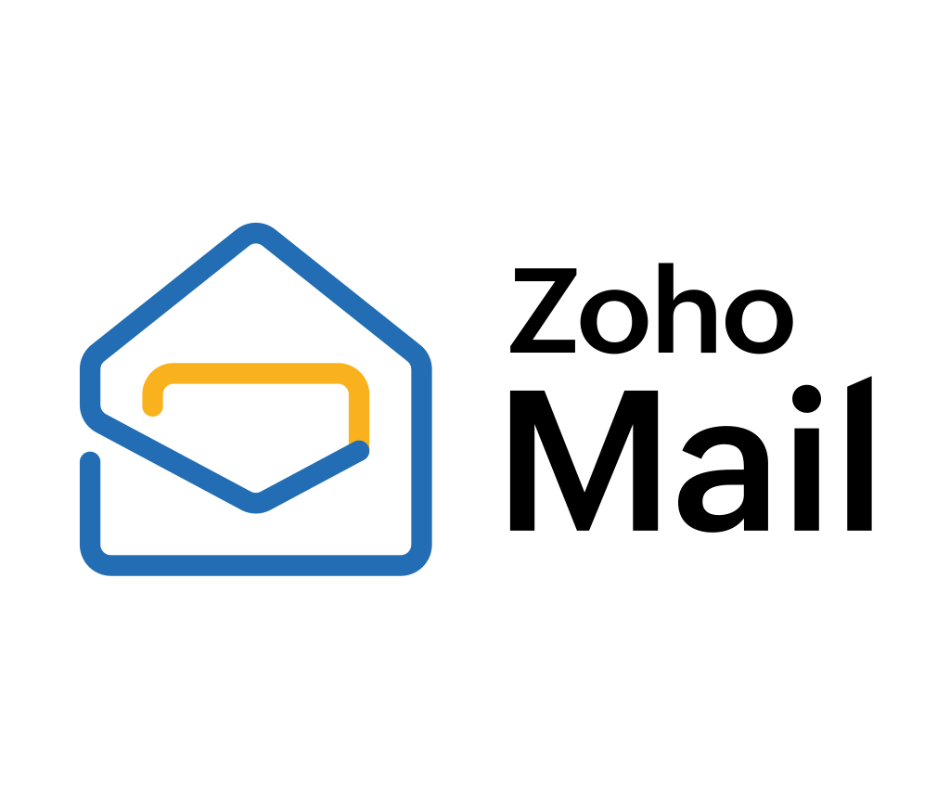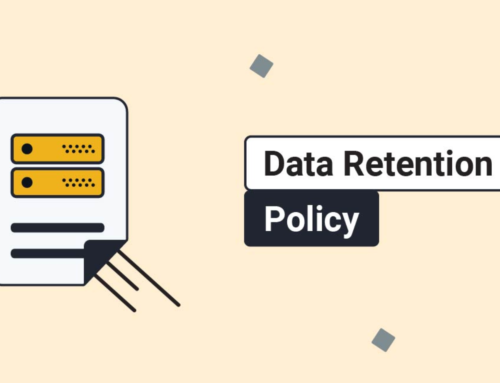Introduction
In the dynamic landscape of modern business, effective communication lies at the heart of success. With the advent of cloud technology, businesses are increasingly adopting cloud-based email services to streamline communication, enhance collaboration, and improve overall productivity. Zoho Workplace has emerged as a prominent player in this domain, offering a comprehensive suite of cloud-based applications, including email services.
The Evolution of Cloud-Based Email Services”
Historical Perspective:
Traditional Email Systems: In the past, businesses relied on on-premises servers to host their email systems. While this allowed for a certain degree of control, it came with limitations such as scalability challenges, restricted accessibility, and high maintenance costs. As businesses expanded, these limitations became increasingly apparent, prompting the need for a more flexible and scalable solution.
Introduction of Cloud Computing: The advent of cloud computing marked a transformative shift in the way businesses managed their data and communication infrastructure. Cloud-based solutions offered the ability to store and access data over the internet, eliminating the constraints associated with traditional on-premises systems. This shift paved the way for a more dynamic, scalable, and cost-effective approach to email services.
Rise of Zoho Workplace:
Zoho Corporation’s Inception: Established in 1996, Zoho Corporation emerged as a pioneering force in delivering cloud-based solutions tailored for businesses of various sizes. Zoho Workplace, a comprehensive suite of applications, including email services, has evolved over the years to meet the evolving demands of modern enterprises.
Zoho Workplace distinguishes itself through its user-friendly interfaces, scalability options, and robust integration capabilities. The platform has been designed to offer a seamless and efficient experience for organizations seeking advanced communication solutions. As businesses increasingly recognize the importance of streamlined and collaborative communication, Zoho Workplace has positioned itself as a preferred choice.
Beyond email services, Zoho Workplace encompasses a range of applications designed to address the multifaceted needs of businesses. This includes tools for collaboration, document management, and more. The integration of these diverse functionalities within a unified platform enhances the overall efficiency and cohesion of organizational operations.
Zoho Workplace’s popularity stems from its ability to adapt to the dynamic nature of business requirements. Organizations across various industries have embraced Zoho Workplace as a solution that not only meets their current communication needs but also provides a foundation for future growth and innovation.
The evolution of cloud-based email services, exemplified by the rise of Zoho Workplace, reflects a broader trend in the business landscape. The transition from traditional, on-premises systems to cloud-based solutions signifies a commitment to agility, scalability, and cost-effectiveness, with Zoho Workplace standing out as a frontrunner in this transformative journey.
Key features mentioned for Zoho Workplace Email:
Intuitive User Interface:
The user interface of Zoho Workplace Email is designed to be user-friendly and intuitive, catering to individuals with varying levels of technical expertise. The clean and organized layout enhances the overall user experience, making it easy for users to navigate through different features and functionalities.
Custom Domain Hosting:
Zoho Workplace Email allows businesses to host custom domains for their email addresses. This means that organizations can create personalized and branded email identities, reinforcing a professional corporate image. The ability to customize email addresses adds an extra layer of personalization, contributing to a cohesive communication strategy.
Advanced Security Measures:
Security is a top priority, and Zoho Workplace Email incorporates advanced security measures to protect sensitive communication and data. This includes robust encryption protocols to secure the content of emails and multi-factor authentication for an additional layer of user verification, ensuring that only authorized individuals have access to the email accounts.
Collaborative Tools Integration:
Zoho Workplace Email is not just an email solution; it seamlessly integrates with a suite of collaborative tools. This integration facilitates real-time collaboration among team members, reducing the reliance on constant email exchanges. Tools like Zoho Docs, Zoho Meeting, and Zoho Projects work together with the email platform to enhance teamwork and workflow efficiency.
Scalability and Flexibility:
Zoho Workplace Email is designed to be scalable, accommodating the evolving needs of businesses. Whether an organization is a startup or an established enterprise, the flexibility of Zoho Workplace ensures that the email solution can adapt to changing requirements. This scalability allows businesses to grow without outgrowing their email solution, making it a suitable choice for organizations of various sizes and stages of development.
Benefits of Zoho Workplace Email Services
Cost-Efficiency
In the realm of email services, Zoho Workplace stands out for its cost-efficiency. Unlike traditional email systems that often require substantial upfront investments and ongoing maintenance expenses, Zoho Workplace Email operates on a cloud-based model. This eliminates the need for extensive hardware investments and offers a subscription-based pricing structure. This approach makes it an economically viable solution for businesses of all sizes, allowing them to allocate resources more efficiently.
Accessibility and Mobility
The contemporary work landscape demands flexibility, particularly with the rise of remote work. Zoho Workplace Email addresses this need by providing users with unparalleled accessibility. Whether working from a desktop, laptop, or mobile device, professionals can seamlessly access their emails from anywhere with an internet connection. The mobile-friendly interface ensures that users can stay connected and productive even while on the move, contributing to the overall efficiency of communication within the organization.
Reliability and Uptime
Uninterrupted communication is paramount for business success, and downtime can have severe consequences. Zoho Workplace Email distinguishes itself through its robust infrastructure, guaranteeing high availability and minimal downtime. This reliability is underpinned by state-of-the-art data centers equipped with redundant systems, ensuring that email communication remains uninterrupted even during unforeseen circumstances. Businesses can rely on Zoho Workplace Email as a dependable and consistent platform for their communication needs.
Integration Capabilities
Zoho Workplace Email is not just a standalone email solution; it is an integral part of a comprehensive ecosystem of applications. Its seamless integration with other Zoho tools and third-party applications enhances overall functionality. This integration provides users with a unified platform for various business needs, fostering collaboration and efficiency. The ability to effortlessly connect and share information across different applications streamlines workflows and contributes to a more cohesive and productive work environment.
Automated Backup and Recovery
Data loss is a significant concern for any organization, and Zoho Workplace Email addresses this by incorporating automated backup and recovery features. These features ensure that critical communication data is regularly backed up, reducing the risk of permanent loss in the event of accidental deletion or system failures. This proactive approach to data protection adds an extra layer of security, allowing businesses to recover swiftly and maintain continuity in their communication processes.
Considerations Before Adopting Zoho Workplace
Migration Process:
- Data Transfer: Ensure a smooth transition by planning and executing the migration of existing email data, contacts, and other crucial information. This involves understanding the compatibility of data formats, mapping data fields, and verifying the integrity of transferred data.
- Downtime: Minimize disruptions during the migration process to avoid downtime for employees. Plan the migration during non-critical business hours or weekends, if possible, to ensure minimal impact on day-to-day operations.
- Testing: Conduct thorough testing of the migration process in a controlled environment before the actual transition to identify and address any potential issues.
User Training:
- Customized Training: Develop a training program tailored to the specific needs of your organization. This should cover basic functionalities as well as advanced features that can enhance productivity.
- Documentation: Provide comprehensive documentation or user guides that employees can refer to after the training sessions. This can serve as a valuable resource for users to troubleshoot issues or learn new features at their own pace.
- Ongoing Support: Establish a system for ongoing support, whether through in-house resources or external support channels, to address user queries and concerns.
Internet Connectivity:
- Bandwidth Requirements: Assess the bandwidth requirements of Zoho Workplace and ensure that your organization’s internet infrastructure can support it adequately.
- Redundancy Plans: Develop contingency plans for situations where internet connectivity is compromised. This may involve backup internet connections or alternative solutions to ensure business continuity.
Compliance and Data Governance:
- Regulatory Compliance: Investigate whether Zoho Workplace complies with industry-specific regulations that your organization must adhere to. This is particularly crucial in sectors such as healthcare, finance, or government.
- Data Security Measures: Understand and evaluate the security measures implemented by Zoho Workplace to safeguard sensitive information. This includes encryption protocols, access controls, and data backup procedures.
- Audit Trails: Check if Zoho Workplace provides audit trail features, which can be essential for regulatory compliance and internal monitoring of data access and modifications.
A thoughtful approach to the migration process, comprehensive user training, robust internet connectivity, and adherence to compliance and data governance standards are vital considerations for the successful adoption of Zoho Workplace.
How Zoho Workplace Stands Out in the Market
Holistic Collaboration Suite:
Zoho Workplace distinguishes itself in the market by providing a holistic collaboration suite that goes beyond the traditional boundaries of email. This suite encompasses a wide array of collaboration tools, creating an integrated ecosystem for businesses. By offering solutions for communication, collaboration, and productivity in a unified platform, Zoho Workplace eliminates the need for businesses to juggle multiple disparate tools. This integrated approach streamlines workflows and enhances efficiency, as users can seamlessly transition between different aspects of their work without the hassle of navigating through various applications.
Continuous Innovation and Updates:
Zoho Corporation’s commitment to continuous innovation and updates is a key factor that sets Zoho Workplace apart in the market. The platform evolves with the rapidly changing technological landscape, ensuring that it remains up-to-date and aligned with the latest industry trends. Regular updates bring new features and functionalities to Zoho Workplace Email, enhancing its capabilities and adapting to the evolving needs of businesses. This commitment to staying at the forefront of technological advancements reflects Zoho’s dedication to providing users with cutting-edge tools and maintaining a competitive edge in the market.
Customer Support and Training Resources:
Zoho Workplace prioritizes customer support and user training, creating a positive experience for businesses that choose their platform. The availability of dedicated customer support channels ensures that users can promptly address any issues or queries they may encounter while using the platform. Extensive documentation serves as a valuable resource for self-help, enabling users to find answers and solutions independently. Additionally, Zoho Workplace provides comprehensive training resources, empowering users to make the most of the platform’s features and functionalities. This commitment to customer success not only fosters user satisfaction but also contributes to the overall reputation of Zoho Workplace as a reliable and user-friendly collaboration solution.
Real-World Use Cases and Success Stories
Case Studies:
- Versatility Across Industries: Explore how Zoho Workplace Email has been successfully implemented in diverse industries such as finance, healthcare, e-commerce, and more. Case studies can showcase how the platform adapts to different business environments, addressing specific challenges unique to each sector.
- Scalability: Highlight instances where businesses have scaled their operations with the help of Zoho Workplace Email. Understand how the platform accommodates growing needs, whether it’s an expanding workforce, increased communication requirements, or global expansion.
- Collaboration Enhancement: Showcase case studies that emphasize the collaborative features of Zoho Workplace Email. This could include examples of teams working seamlessly across geographies, improving productivity, and fostering better communication within the organization.
- Security and Compliance: Illustrate how Zoho Workplace Email has assisted businesses in maintaining robust security measures and compliance standards. This is particularly important for industries with stringent regulatory requirements, such as finance and healthcare.
- Customization and Integration: Explore how businesses have tailored Zoho Workplace Email to suit their specific workflows and integrated it with other tools seamlessly. This showcases the platform’s adaptability to unique business processes and its role in enhancing overall efficiency.
User Testimonials:
- Positive Experiences: Share firsthand accounts from individual users and organizations about their positive experiences with Zoho Workplace Email. Highlight specific features that users find most valuable in their day-to-day operations.
- Ease of Use: Emphasize testimonials that speak to the user-friendly nature of the platform. This can include feedback on the intuitive interface, easy setup processes, and the overall positive impact on daily work routines.
- Problem Resolution: Feature testimonials that narrate instances where Zoho Workplace Email played a crucial role in resolving communication challenges or issues. This helps build confidence among potential users in the platform’s effectiveness.
- Customer Support: If applicable, include testimonials that commend Zoho’s customer support services. Positive experiences with customer support contribute to the overall satisfaction of users and can influence others to choose the platform.
- Long-Term Value: Showcase testimonials that highlight the long-term value users have derived from Zoho Workplace Email. This could include improved productivity, cost savings, or any other sustained benefits that users have experienced over time.
Future Trends and Developments in Cloud-Based Email Services
Artificial Intelligence and Machine Learning Integration:
- Predictive Analytics: AI and ML algorithms will analyze user behavior and historical data to predict email patterns, helping users prioritize and manage their emails more effectively. This could include predicting which emails are most relevant or urgent.
- Smart Filtering: Advanced filtering mechanisms powered by AI can automatically categorize and filter emails based on content, sender reputation, and user preferences. This helps in reducing the noise in email inboxes and enhances the overall user experience.
- Automated Responses: AI-driven automated response systems can compose and send responses to routine emails, saving time for users. These responses can be personalized based on the context of the email, contributing to more efficient communication.
Enhanced Security Measures:
- Zero-Trust Security Models: The adoption of zero-trust security models implies that no user or system is inherently trusted, even if they are inside the corporate network. This approach ensures continuous verification and validation of users and devices, enhancing overall security.
- Advanced Threat Detection: Cloud-based email services will employ sophisticated algorithms to detect and prevent advanced cyber threats, including phishing attacks, ransomware, and other malicious activities. Real-time monitoring and quick response mechanisms will be integral components of these security measures.
Continued Emphasis on Collaboration:
- Integration with Project Management: Cloud-based email services will seamlessly integrate with project management tools, allowing users to transition from email discussions to collaborative project work without switching between different platforms. This streamlines communication and enhances productivity.
- Document Collaboration: Enhanced collaboration features will enable users to work on documents collaboratively within the email interface. Real-time editing, version control, and commenting functionalities will be integrated to facilitate smoother collaboration on shared documents.
- Video Conferencing Integration: Integration with video conferencing applications will become more seamless, allowing users to schedule, join, and manage video meetings directly from their email platform. This integration aims to centralize communication tools and simplify the user experience.
The future trends in cloud-based email services revolve around leveraging advanced technologies to make communication more intelligent, secure, and collaborative. These developments aim to address the evolving needs of businesses and individuals in an increasingly digital and interconnected world.
Conclusion
Zoho Workplace Email stands as a testament to the transformative power of cloud-based email services in the realm of modern business communication. Its user-friendly interface, robust security measures, and integration capabilities position it as a compelling choice for organizations seeking an efficient and scalable email solution. As businesses navigate the evolving landscape of remote work and digital collaboration, Zoho Workplace Email remains at the forefront, providing a comprehensive suite of tools to meet the diverse needs of today’s enterprises.
Cloud-based email services are playing a pivotal role in shaping how organizations communicate and collaborate. Zoho Workplace stands out as a comprehensive solution, offering a user-friendly interface, advanced features, and seamless integration with other business applications. As businesses continue to prioritize efficiency, scalability, and security, Zoho Workplace’s cloud-based email services are likely to remain a key player in the digital transformation journey of organizations around the globe.
Yes, Zoho Workplace allows users to use their own domain for email addresses. This is beneficial for maintaining a professional appearance for business communications.
Zoho Workplace typically includes collaboration tools like document editing, spreadsheets, and presentation software. These tools are designed to enhance team collaboration and productivity.
Yes, Zoho Workplace is usually designed to be compatible with various mobile devices. Users can access their emails, documents, and other features on smartphones and tablets.
Zoho Workplace employs spam filters and malware protection to safeguard users from malicious emails. It often includes features such as blacklisting and whitelisting to enhance security.
Zoho Workplace often supports integration with a variety of third-party applications to enhance functionality. This may include CRM, project management, and other business tools.
Zoho Workplace typically offers varying storage capacities based on the subscription plan. Users can choose plans that meet their storage requirements.
Zoho Workplace generally includes regular data backups to ensure that critical information is not lost. Users may also have the option to perform manual backups as needed.
Zoho usually provides customer support through various channels, such as email, chat, and phone support. They may also have a knowledge base and community forums for users to find answers to common questions.







